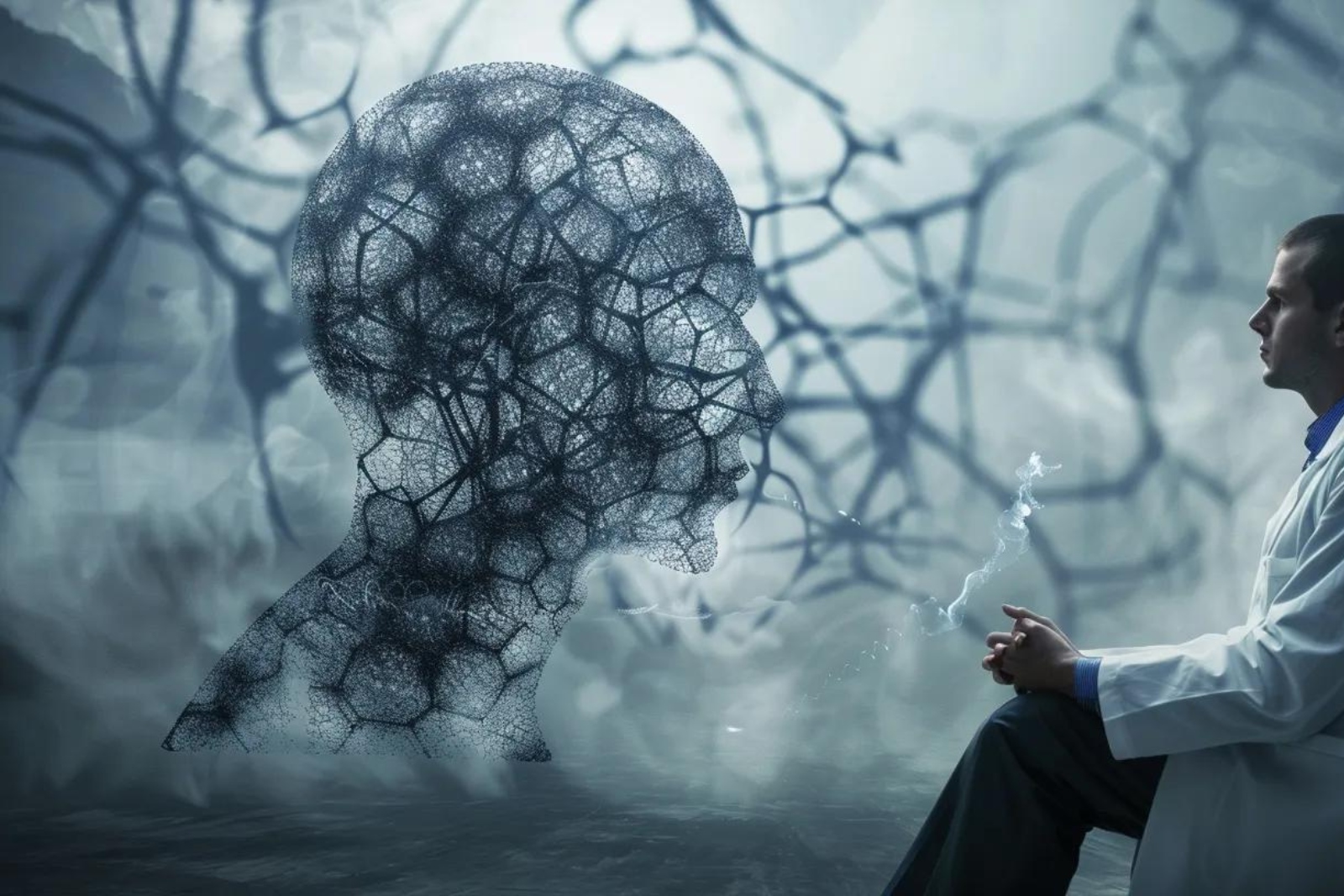
You should consider seeing a psychiatrist if sadness, anxiety, or mood swings persist and affect daily life. It is also time to seek help when sleep problems, severe stress, trauma, or suicidal thoughts occur, or when therapy and lifestyle changes are not enough. Early evaluation gives you proper diagnosis and treatment options.
What Makes Psychiatrists Different From Other Mental Health Providers?
Psychiatrists are medical doctors who completed 4 years of medical school plus 4 years of psychiatry residency training. This medical background allows them to prescribe medications and treat complex mental health conditions that require pharmaceutical intervention.
Medical Training Advantages
Unlike psychologists who hold doctoral degrees but cannot prescribe medications, psychiatrists combine medical knowledge with psychological expertise. Therapists and counselors provide valuable support through talk therapy, but they cannot address severe mental illnesses that need medication stabilization.
The medical training advantage allows psychiatrists to understand how psychiatric medications interact with other prescriptions, manage side effects effectively, and adjust dosages based on individual patient responses and medical history.
Common Conditions Treated
Psychiatrists specialize in conditions requiring medical intervention. These include major depressive disorder, generalized anxiety disorder, bipolar disorder with manic episodes, attention deficit hyperactivity disorder, post-traumatic stress disorder from trauma exposure, and obsessive-compulsive disorder with intrusive thoughts.
When Do Daily Activities Become Too Difficult?
Mental health symptoms require psychiatric care when they prevent basic daily functions like work attendance, adequate sleep, proper nutrition, or self-care routines. The National Institute of Mental Health reports 57.8 million American adults live with mental illness, making functional impairment a widespread concern.
Functional Impairment Signs
Warning signs of functional impairment include inability to get out of bed most days, missing work or school frequently, stopping regular meal consumption, and avoiding friends and family completely. These behaviors indicate that mental health symptoms have progressed beyond normal stress responses.
Sleep and Energy Disruptions
Sleep and energy changes often signal psychiatric conditions. People may sleep less than 4 hours nightly due to racing thoughts, sleep more than 12 hours daily from depression, feel exhausted despite adequate rest, or cannot concentrate on simple tasks like reading or following conversations.
Professional intervention becomes necessary when these symptoms persist for weeks rather than days, worsen despite rest and self-care attempts, or interfere with employment, relationships, or physical health maintenance.
Are Suicidal Thoughts Always a Psychiatric Emergency?

Suicidal thoughts always require immediate psychiatric intervention through emergency services or crisis hotlines. Call 988 (Suicide & Crisis Lifeline) for immediate professional support and safety planning assistance.
According to the Centers for Disease Control and Prevention, most suicide attempts involve diagnosable mental health conditions that respond well to appropriate treatment. Men complete suicide 4 times more than women, while women attempt suicide more frequently than men, indicating different risk patterns requiring specialized approaches.
Self-Harm Warning Signs
Self-harm behaviors extend beyond suicidal ideation to include physical injury like cutting, burning, or hitting oneself, engaging in dangerous activities without regard for safety, and substance abuse to numb emotional pain or create physical sensations.
Any expression of hopelessness, worthlessness, or desire to escape life permanently warrants immediate professional evaluation. Even passive thoughts about death or wishing to not wake up indicate serious depression requiring psychiatric evaluation and intervention.
How Do You Know When Emotions Are Out of Control?
Emotions require psychiatric attention when they cause harm to relationships, work performance, or physical safety. Normal emotions pass within days or weeks, while psychiatric conditions persist for months and intensify over time without professional treatment.
Anger Management Issues
Uncontrollable anger manifests through verbal or physical aggression toward others, breaking objects during emotional episodes, road rage or confrontations with strangers, and feeling intense rage without clear triggers or proportional responses to situations.
Overwhelming Fear and Anxiety
Overwhelming fear and anxiety become pathological when they prevent leaving home for weeks, cause panic attacks with physical symptoms like chest pain or shortness of breath, create irrational fears about normal activities like grocery shopping, or interfere with job performance consistently over months.
Emotional dysregulation also includes extreme mood swings from euphoria to despair within hours, crying episodes that last for days without relief, numbness or inability to feel emotions appropriately, and emotional reactions that seem disconnected from triggering events.
Does Family History Increase Mental Health Risk?
Family history of mental illness increases individual risk by 2-8 times depending on the condition and relationship closeness. Genetics contribute to most psychiatric disorders alongside environmental factors like stress, trauma, and substance use.
Genetic Risk Factors
Conditions with strong genetic components include schizophrenia with 10% risk if parent affected, bipolar disorder with 15-30% risk when parent has diagnosis, and major depression with 20-30% risk among first-degree relatives with family history.
Preventive Care Benefits
People with family psychiatric history benefit from early screening for symptoms, learning stress management techniques, regular mental health check-ups, and understanding warning signs specific to their genetic risk factors.
Preventive care becomes especially important during high-stress periods like college transitions, job changes, relationship problems, or major life events that can trigger underlying genetic predispositions to mental illness.
Can Physical Symptoms Indicate Mental Health Problems?
Physical symptoms without medical cause often stem from psychiatric conditions like anxiety, depression, or trauma disorders. The mind-body connection creates real physical pain from emotional distress, requiring integrated treatment approaches.
Psychosomatic Symptom Recognition
Common psychosomatic symptoms include chronic headaches with normal brain scans, stomach pain without digestive diseases, chest pain with healthy heart function, muscle tension throughout the body, chronic fatigue despite adequate rest, and dizziness without inner ear problems.
Medical Collaboration Approach
Psychiatrists work with primary care physicians to rule out medical causes first, identify stress-related symptoms, and coordinate integrated treatment plans that address both physical and mental health components simultaneously.
Depression treatment often includes addressing physical symptoms like pain, fatigue, and sleep disturbances that commonly accompany mood disorders and may not resolve without psychiatric intervention.
When Do Relationship Problems Require Psychiatric Help?
Relationship conflicts need psychiatric intervention when they stem from untreated mental health symptoms rather than normal disagreements or communication issues. Mental illness affects emotional regulation, empathy, communication skills, and relationship maintenance abilities.
Relationship Impact Patterns
Untreated conditions create frequent arguments about minor issues, inability to maintain friendships despite desire for connection, workplace conflicts with supervisors and colleagues, and family members expressing concern repeatedly about behavioral changes or mood instability.
Substance Use as Coping Mechanism
Using alcohol or drugs to manage emotions indicates need for psychiatric evaluation. Daily drinking to feel normal, using illegal drugs to sleep or focus, prescription medication misuse for mood regulation, or increasing substance tolerance all suggest underlying mental health conditions requiring professional treatment.
Social isolation patterns also indicate psychiatric concerns, especially withdrawing from previously enjoyed activities, canceling plans consistently, avoiding family gatherings, or losing interest in hobbies that once provided satisfaction and meaning.
What Happens When Previous Treatment Fails?
Failed therapy or medication trials require psychiatric reevaluation for accurate diagnosis and treatment adjustments. Some conditions need combined approaches, specialized medications, or longer treatment duration than initially prescribed.
Treatment Failure Causes
Reasons treatment may not work include incorrect initial diagnosis, multiple co-occurring conditions like depression with anxiety, medication resistance or significant side effects, inadequate therapy duration, or life stressors that interfere with treatment effectiveness.
Advanced Treatment Options
Medication management allows psychiatrists to change medication dosages based on response, switch to different drug classes with better side effect profiles, add complementary medications for enhanced effectiveness, and monitor for dangerous drug interactions with other prescriptions.
Treatment resistance occurs in approximately 20-30% of people with major depression, making psychiatric expertise essential for exploring alternative approaches like combination therapy, augmentation strategies, or advanced treatments.
How Do You Overcome Barriers to Psychiatric Care?
Cost and stigma are the primary barriers to mental health treatment, but insurance coverage and community resources reduce these obstacles significantly. Mental Health America reports 52% of people avoid care due to cost concerns, despite available financial assistance options.
Financial Access Solutions
Insurance coverage has improved dramatically since the Affordable Care Act, with most plans covering mental health services equally with medical care. Community mental health centers offer sliding scale fees based on income, while employee assistance programs provide free sessions for workers and their families.
Technology-Based Access
Telehealth services reduce travel costs and time barriers, making psychiatric care accessible for people in rural areas or those with transportation challenges, while maintaining treatment effectiveness comparable to in-person sessions.
Addressing mental health stigma requires understanding that psychiatric conditions affect 1 in 5 American adults annually, treatment success rates exceed 80% for most conditions with appropriate care, and seeking help prevents more serious complications that affect work, relationships, and physical health.
What Should You Expect During Your First Psychiatric Visit?

The initial psychiatric evaluation lasts 60-90 minutes and includes comprehensive medical history, symptom assessment, mental status examination, and collaborative treatment planning with patient input and preferences.
Appointment Preparation
Preparation steps include listing all current medications and supplements with dosages, writing down symptoms and their duration, gathering family psychiatric history information, and preparing questions about treatment options and expectations.
Assessment Components
Psychiatrists assess current symptoms and their severity using standardized questionnaires, review medical history and family psychiatric background, evaluate social functioning and support systems, examine substance use patterns, and assess risk factors for self-harm or harm to others.
Anxiety treatment planning considers symptom severity, functional impairment, patient preferences, medical contraindications, and previous treatment responses to create individualized approaches that maximize effectiveness while minimizing side effects.
What Treatment Options Do Psychiatrists Provide?
Psychiatric treatment combines medication, therapy, and lifestyle interventions based on individual diagnosis and symptom severity. Treatment plans adapt based on patient response, changing circumstances, and emerging symptoms over time.
Medication Categories
Medication categories include antidepressants for depression and anxiety disorders, mood stabilizers for bipolar disorder, antipsychotics for schizophrenia and severe mood episodes, stimulants for attention deficit hyperactivity disorder, and anti-anxiety medications for panic disorders.
Therapy Integration
Psychotherapy integration enhances medication effectiveness through cognitive behavioral therapy for negative thought patterns, family therapy for relationship issues, group therapy for peer support, and trauma-focused therapy for post-traumatic stress disorder.
Advanced Treatment Methods
Advanced treatment options for treatment-resistant conditions include:
- Transcranial magnetic stimulation for severe depression
- Ketamine infusion therapy for rapid symptom relief
These specialized treatments require careful patient selection and monitoring by experienced psychiatric specialists.
Are There Special Considerations for Different Age Groups?
Children, adults, and seniors require different psychiatric approaches due to developmental differences, age-specific risk factors, and varying treatment responses across the lifespan.
Pediatric Mental Health
Children may need psychiatric help when showing sudden grade drops or school refusal, aggressive behavior toward peers or adults, persistent nightmares or sleep disturbances, social withdrawal from friends and activities, or developmental regression in previously mastered skills.
Geriatric Considerations
Older adults face specific challenges including medication interactions with other prescriptions, grief from loss of spouse or friends, cognitive changes affecting mood and behavior, medical illness complications, and social isolation that exacerbates mental health symptoms.
ADHD treatment varies significantly between children and adults, with different medication dosing, behavioral interventions, and functional goals that reflect age-appropriate expectations and developmental capabilities.
Frequently Asked Questions About Seeing a Psychiatrist
What Is The Difference Between A Psychiatrist And A Psychologist?
A psychiatrist is a medical doctor who can prescribe medications and treat severe mental illnesses, while a psychologist has a doctoral degree in psychology and provides therapy but cannot prescribe medications.
How Long Does A Typical Psychiatric Appointment Last?
The first psychiatric appointment usually lasts 60-90 minutes for comprehensive evaluation, while follow-up appointments typically range from 15-30 minutes for medication management and progress monitoring.
Will I Need To Take Medication If I See A Psychiatrist?
Not everyone who sees a psychiatrist needs medication. Treatment decisions depend on your specific diagnosis, symptom severity, and personal preferences, with many patients benefiting from therapy alone or combined approaches.
How Much Does Psychiatric Treatment Cost?
Most insurance plans cover psychiatric care equally with medical services. Community mental health centers offer sliding scale fees, and many psychiatrists accept insurance or provide payment plan options for uninsured patients.
How Long Does Psychiatric Treatment Usually Take?
Treatment duration varies widely based on condition severity and individual response. Some people see improvement within weeks, while others may need ongoing care for months or years to maintain stability and prevent relapse.
Final Thoughts
Seeking psychiatric care demonstrates personal strength and commitment to health recovery. Mental health conditions are medical illnesses that respond well to professional treatment when diagnosed accurately and treated appropriately.
The decision to see a psychiatrist should occur when symptoms interfere with daily life, create safety concerns for self or others, or persist despite other interventions like therapy, lifestyle changes, or support from family and friends.
Early treatment prevents symptom progression, reduces the risk of complications, improves long-term outcomes, and helps people return to their normal level of functioning more quickly than delayed intervention.
Ready to take the next step toward mental wellness? Contact South Florida Med Group to schedule a comprehensive psychiatric evaluation and begin your personalized path to recovery and improved quality of life.

.png)
.png)
.png)



.png)
.png)
.png)



.png)

.png)
